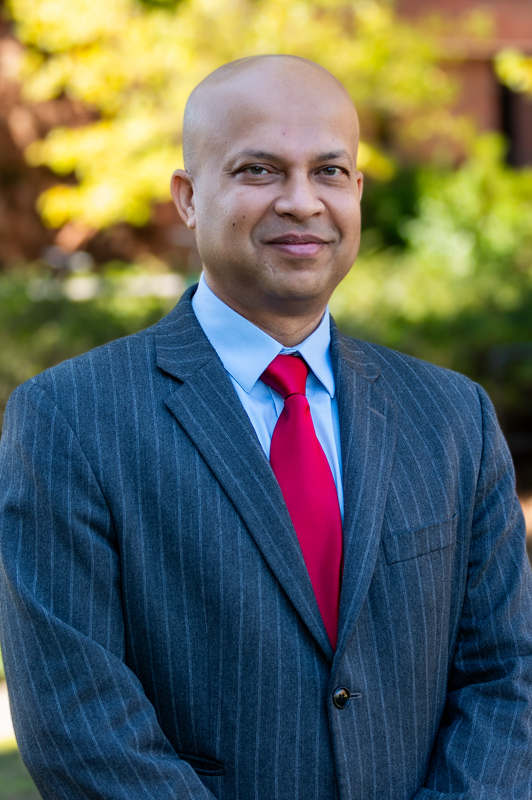Electrical and computer engineering students are competition-proven and career-ready
Published: Sep 28, 2021 12:00 PM
By Joe McAdory
Two reputable crypto-engineering competitions share a common denominator: Auburn University’s Electrical and Computer Engineering program.
Three graduate students – Yadi Zhong, Yuqiao Zhang and Ziqi Zhou – won the HACK@Cryptographic Hardware and Embedded Systems (CHES) 2021 Challenge, held virtually Sept. 15-17, just a month after finishing runner-up at HACK@SEC21.
The students, under the direction of Dr. Ujjwal Guin, assistant professor in the Department of Electrical and Computer Engineering (ECE) within the Samuel Ginn College of Engineering, were awarded a grand prize of $1,300 for their efforts.
Teams were given vulnerable system-on-chips (SoCs) and were challenged to identify potential exploitations of hardware vulnerabilities, including cryptographic hardware, focusing on incorrect usage of cryptographic primitives; unspecified behaviors; and incorrect assumptions, specifications and implementations.
Why is this important?
Given the increased demand for security and privacy, various security mechanisms, including cryptographic algorithms and protocols, are implemented into hardware. An increasing number of sophisticated attacks continue to exploit cross-layer security-critical hardware vulnerabilities. These attacks leverage subtle interactions between hardware and software, as recently demonstrated through a series of real-world exploits that affected all major hardware vendors.
“Participating in these competitions and the class projects at Auburn gives us a greater opportunity to understand better that hardware bugs that exist in the real industry and avoid these problems in future software designs,” said Zhou, who recently graduated and accepted a position at Cadence in Austin, Texas. “In addition, participating in these competitions provides us with direction for our academic research. We have the opportunity to conduct further analyses on actual hardware bugs, and whether these bugs can be detected through corresponding research methods.
“These hardware bugs often come from our theoretical research. Bugs included in these competitions are based on actual bugs within the industry.”
Ranked among U.S. News & World Report’s best graduate programs for electrical, electronic, communications and computer engineering, Samuel Ginn College of Engineering ECE graduates are among some of the best-prepared and most sought-after students in the nation.
With the rapid pace of technological development, the Department of Electrical and Computer Engineering strives to educate its graduates to lead the field in careers as design engineers, technical sales engineers, project managers and testing and research engineers. Graduates are prepared to face the future with the ability to address matters such as national security, renewable energy, disaster relief, communication and entertainment.
Recent employers include Intel, Qualcomm, Cadence, Hewlett- Packard, NSA, AT&T, National Instruments, Motorola, the Strategic Missile and Defense Command, Northrop Grumman, NASA, CIA, Dynetics, Mercedes-Benz, ExxonMobil, Procter and Gamble, Walt Disney, Suzuki, BMW, ChevronTexaco, Honda, ADTRAN, and many more.
It all starts in the classroom.
“We teach the important security materials utilized by industry, including cryptography and SoC design,” said Guin, who teaches Hardware Security I and II. “Then you integrate these disciplines together. Another way we prepare our students for the next level is allowing them to choose from a variety of hands-on projects and experiential learning opportunities. We have open problems in the industry that have not yet been solved. I don’t expect them to come up with complete solutions, but we give them the opportunity to address the problems and gain more experience.
“The electrical and computer engineering field is wide-open. Many students will be competing for jobs after they graduate. If you want to work in the best companies or have the best jobs, you have to be the best.”
Media Contact: , jem0040@auburn.edu, 334.844.3447
Dr. Ujjwal Guin, assistant professor in electrical and computer engineering, with graduate students Yadi Zhong, Yuqiao Zhang, and Ziqi Zhou.


